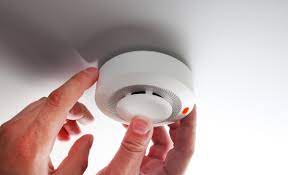Understanding Commercial Fire Alarms
Commercial fire alarm systems are a crucial component of fire safety in businesses, factories, schools, and other public spaces. These systems work tirelessly behind the scenes, ready to spring into action when needed most. But how do commercial fire alarms actually work? Check out: https://douglaselectric.us/how-do-commercial-fire-alarms-work/
At the heart of every fire alarm system are smoke detectors and heat detectors. Smoke detectors use various technologies, such as ionization or photoelectric sensors, to detect the presence of smoke particles in the air. When smoke is detected, these sensors trigger the alarm. Heat detectors, on the other hand, are activated when a certain temperature threshold is reached. Both types of detectors are strategically placed throughout a commercial building to ensure comprehensive coverage.
The control panel is the brain of the commercial fire alarm system. It receives input from the various detectors and, when a potential fire hazard is detected, sends out a signal to sound the alarm. It can also communicate with emergency services and trigger sprinkler systems if they are installed.

Once the control panel is activated, it communicates with notification devices throughout the building. These devices include sirens, strobe lights, and sometimes voice evacuation systems. The combination of audible and visual signals is designed to alert occupants to the danger and guide them to safety.
Many commercial fire alarm systems are also connected to monitoring services. In the event of an alarm, the monitoring service is alerted and can contact the fire department or emergency responders if necessary. This extra layer of communication ensures a swift response to the fire.
Commercial fire alarms are not a “set-and-forget” system. Regular maintenance and testing are critical to their reliability. This includes checking detectors, batteries, and the control panel to ensure they are functioning correctly. Routine inspections help identify and address any issues before they become critical.
Commercial fire alarm systems are complex yet vital tools for protecting lives and property. Their ability to detect and respond to fire threats promptly can make all the difference in minimizing damage and ensuring the safety of everyone within a commercial building. Understanding how these systems work is the first step in appreciating their importance in fire safety.

